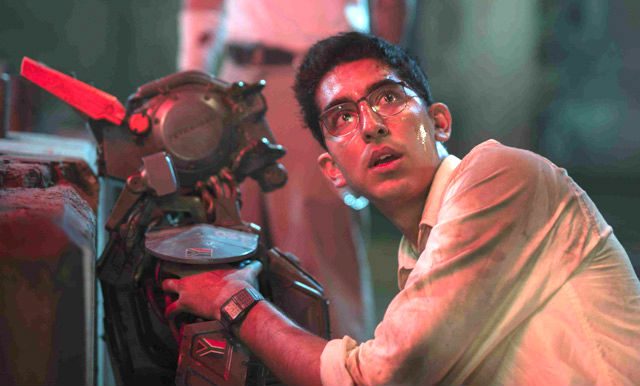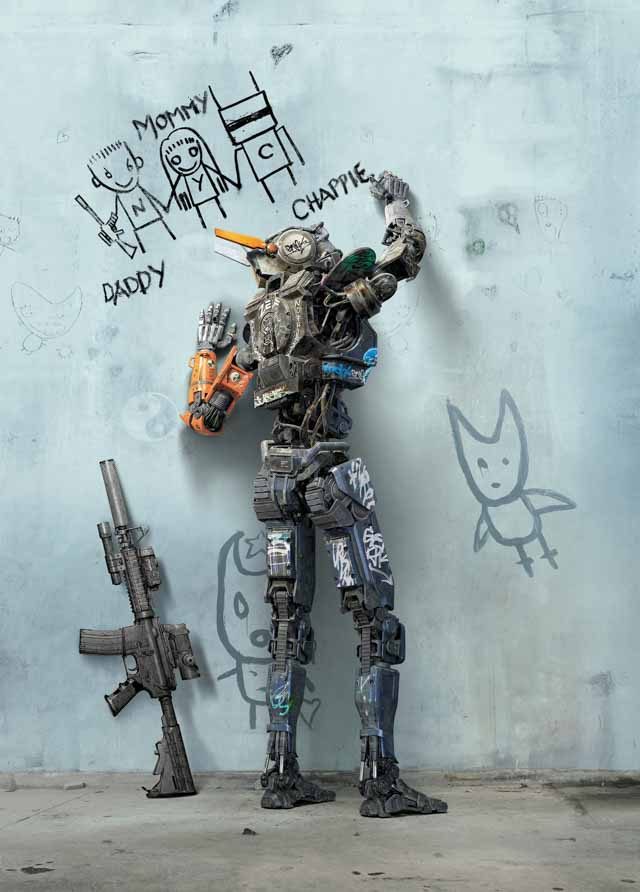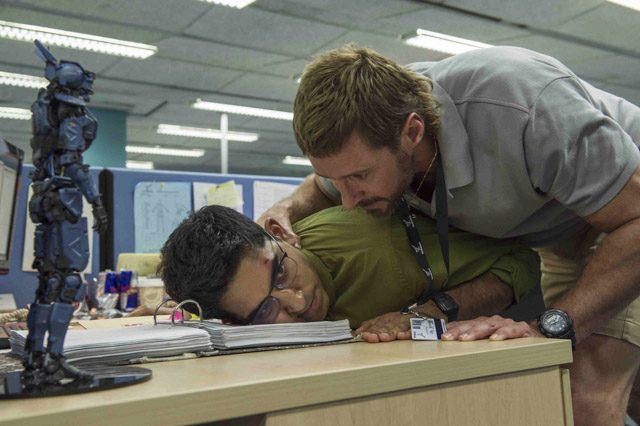SUMMARY
This is AI generated summarization, which may have errors. For context, always refer to the full article.

In 2004, Neill Blomkamp made Tetra Vaal, a two-minute movie that resembles more a mock advertisement for law enforcement robots than the usual narrative short film. The film imagines a future where third world nations would greatly benefit from an indestructible police force to quell crime. (WATCH: Sigourney Weaver’s advice for newbies)
The short lacks a proper storyline but hints at endless possibilities worth exploring, from its central idea of a society that is marshaled by artificially intelligent creations. Chappie takes its cue from Tetra Vaal, which now lends its name to the fictional corporation that produces the crime-fighting robots.

In Chappie, the city of Johannesburg has recruited an army of Tetra Vaal’s robots in its war against crime. Pockets of crime still exist within the city, mostly fostered by ingenious gangs who find ways to evade the robots. Tetra Vaal, in turn, has its engineers to improve its roster of cops to satisfy the city’s needs.
Office intrigue
Deon Wilson (Dev Patel), the inventor of the cops, is interested in developing a fully sentient robot, capable not only of being programmed for law enforcement but also to feel, understand and make decisions like all humans. His rival, ex-soldier Vincent Moore (Hugh Jackman), is busy with his bulky creation, a high-powered and gargantuan metallic beast that can be controlled by him. (WATCH: Which scary movie terrified ‘Chappie’ star Dev Patel?)
When Deon finally cracks the code for full artificial intelligence, he gets hijacked by a group of desperate street thugs (Ninja, Yo-Landi Visser, and Jose Pablo Cantillo) who force him to give birth to the titular robot. Chappie is then raised by the thugs, who are suddenly forced to take the role of responsible parents, keeping in mind their need to raise a huge amount of money to pay off a debt. (WATCH: In ‘Chappie,’ Hugh Jackman is an intense villain with a mullet)
Vincent, fueled by jealousy and envy, is ready to do anything and everything to grant his creation the go-signal to be deployed to battle crime. Deon, on the other hand, finds himself in the middle of a circle of intrigues, trying his best to guide Chappie to be morally upright despite its shady upbringing while dodging Vincent’s taunts and intimidation.

Juvenile science fiction
Chappie occupies itself with too many ideas, ultimately abandoning what made Tetra Vaal, with its limited running time, somewhat intriguing. By focusing on a specific robot that has been gifted with sentience, Blomkamp abandons the exploration of the setting that finds itself desperately in need of a disposable police force.
Blomkamp, in his last two features, has always been interested in the social constructs that has led to the deployment of not-so-improbable science fiction ideas. In District 9 (2009), aliens are quarantined within a well-guarded area, reminiscent of the segregation based on race or religion that happens in real life.
In Elysium (2013), the existing social divide finds itself pronounced and exaggerated with a city above the sky that is exclusive for the rich and powerful, while the rest of the world is suffering on Earth’s polluted surface.
Chappie seems to eschew social observation and instead focuses on concepts that are part and parcel of man-made sentience. Blomkamp attempts to confront issues involving existence, morality and individuality, but finds himself ill-equipped for such a daunting task, turning the film into something that is less compelling than its designs and efforts.
Human element
It is quite evident that Blomkamp is only winging the science part of the film. A lot of Chappie’s explorations on consciousness and sentience is depicted through unintelligible computer screens and spoken exposition. Blomkamp offers no discourse, simply because there really isn’t anything there but ideas that are meant to be cool but nothing more.
Chappie shines when Blomkamp is closer to his range. District 9 has Blomkamp successfully breathing humanity into creatures that have been designed to look unsightly and obnoxious. Similarly, Chappie depicts with ample humor the confusion of parenting an intimidating robot, one that looks as grotesque as the shrimp-like aliens of District 9. It is this very human element that salvages the film from drowning in its own ambition.

The sentient robot’s journey from an ignorant mess of metal to a gangster with a heart of gold, as raised by the most awkward of guardians with the most wayward of intentions, is the film’s flickering soul. It is its resonating connection to this contemporary world of odd parents and odd children.
Endless possibilities
Chappie also suffers with incomprehensible storytelling. Blomkamp has trouble streamlining his narrative and takes too long a time to get to the core of his film. A lot of the film is wasted on unnecessary exposition and characters that lend nothing to the film.
Like Tetra Vaal, Chappie only offers endless possibilities that haven’t been fully explored. Blomkamp only succeeds in stuffing his film with as many ideas as possible without coherently weaving them together in satisfactory fashion. The film ends up only a shadow of its immense ambitions. – Rappler.com
 Francis Joseph Cruz litigates for a living and writes about cinema for fun. The first Filipino movie he saw in the theaters was Carlo J. Caparas’ ‘Tirad Pass.’ Since then, he’s been on a mission to find better memories with Philippine cinema. Profile photo by Fatcat Studios
Francis Joseph Cruz litigates for a living and writes about cinema for fun. The first Filipino movie he saw in the theaters was Carlo J. Caparas’ ‘Tirad Pass.’ Since then, he’s been on a mission to find better memories with Philippine cinema. Profile photo by Fatcat Studios
Add a comment
How does this make you feel?
There are no comments yet. Add your comment to start the conversation.